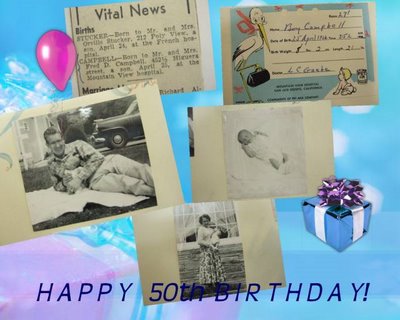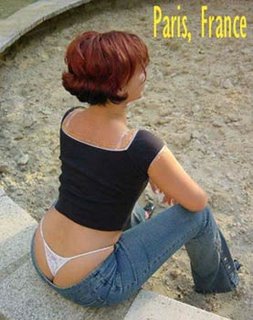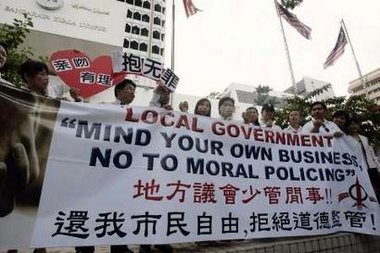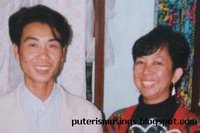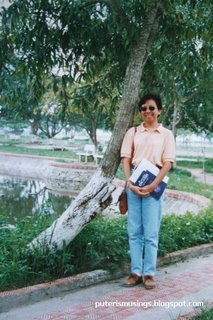The Local Hairdresser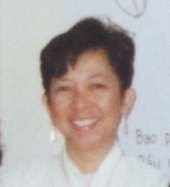
At the campus one can get a good haircut for really cheap. The guys could get a hair cut and a shave if they wanted to. There was a wall surrounding the male students dormitory and along that wall was a row of barbers ... doing their business outdoors under a tree or a flimsy shade cloth.
But for the ladies there was only, as far as I knew, one hairdresser inside the campus. I was brought to this lady, named Mrs Minh, for my first haircut in Vietnam. I came to Vietnam with very short hair, anticipating the difficulty of getting a good haircut. But as time went on, my hair style got even shorter. Hahaha, and that could probably be due to the size of scissors that the hair dresser used ... well not really!
I have never seen a hair dresser use scissors that one normally would use for cutting fabric! But this lady used the same kind of scissors to cut her clients hair! I refused to have my hair cut with that pair of scissors she brandished around! My student had to translate for me and told Mrs Minh to use the scissors only meant for cutting hair. Heheh, every time after that first hair cut, I had to remind Mrs Minh not to use the huge scissors whenever she cut my hair.
Later on, I tried a hair dresser outside the campus gates. I even had my hair washed there. It was quite a pleasant experience. Not only did she cut and wash my hair, she also massaged my face, and put a wet piece of towel on my face and poured warm water on it! Wow, that was really nice!
A Motorcycle Incident and a Pair of Boots StoryOne day, I let it be known that I wanted to buy a pair of shoes. On hearing this, a Cambodian student, Som An, offered to take me to Hanoi to buy this pair of shoes.
I really appreciated the help the students offered me. It cost them time and money (for petrol) to take me to Hanoi. Hanoi is over 20 km from the university, and just before you enter the main city center, there is a bridge where you have to pay a toll, not much but still it cost the students something.
So one evening Som An took me to Hanoi. We visited a few shoe shops, and finally I found a shop where I saw the shoes that I wanted. While I was trying out the shoes, Som An stood at the entrance of the shop, keeping an eye on his motorcycle. It was easy to lose your motorcycles or bicycles in Vietnam.
When we were done, we walked toward his parked motorcycle. A lady sitting on the sidewalk selling some food, said something in Vietnamese. Som An laughed, so I asked what that was all about. "Somebody just siphoned some of the petrol in my motorcycle."
"What?!" I exclaimed. It was unbelieveable that someone could do it almost right under our noses, and in fact right in front of the food vendor!

I was quite indignant the whole time we rode back to the campus but Som An simply shook his head and laughed over the whole incident. To this day I still cannot figure out how he could be so cool over the whole incident.
The picture at right shows me with the Cambodian student, SomAn, standing at the steps of the Guest House. The boots I was wearing in the picture were the ones I bought. The flowers in my hands were a gift from him to commemorate my birthday.
A Lieutenant-ColonelMost Sundays, Tony (Singaporean colleague), would take me to a Vietnamese speaking church in Hanoi. We didn't understand a word of the service but there were people at that church that we really liked. One of the church leaders was a professor at the university where Tony and I served.
But the most unlikely person in that church was a Lieutenant-colonel of the Vietnamese army. He wasn't there to worship but to "befriend" Tony. Tony had warned me about this guy before I actually met him. Tony suspected that he was keeping tabs on the activities at the church and also of Tony. I asked Tony how we should behave when we were with him. Act naturally because we had nothing to hide.
So one day I met Lieutenant-colonel Cuoung for the first time after church. He offered to take us out for drinks and after the drinks he told us that he would like to have pictures taken of all of us. We couldn't refuse that offer, and he quickly called a free-lance photographer who was hanging around the beautiful Hoan Kiem Lake in Hanoi.
On the way home from church Tony and I laughed over the whole incident. We wouldn't be surprised if our pictures were in some government file or other! Heheh.
Tony only stayed another 3 or 4 months after I arrived. When he returned to Singapore, I and an American volunteer named Kris, were the only foreign teachers left. During that time, I had a surprise visit from Leiutenant-colonel Cuoung at the Guest House. He said he was passing through the area and decided to drop by and pay us a visit. He asked me why I never attended church anymore, and I told him, there was no one to take me to church any more since Tony left.
Actually, I started attending an expat church after Tony left. I was sure the lieutenant-colonel was aware of that activity because none of us at the expat church believed that the authorities were unaware as to who exactly attended the expat church!
 L-R: Tony, Lieutenant-colonel Cuoung, and me.
L-R: Tony, Lieutenant-colonel Cuoung, and me.

 Duncan couldn't wait to blow out the candles! He cried because his dad didn't let him blow out the candles ... didn't want Duncan's germs on the cake! Haha. I had to cut a small piece of cake for him and put a candle on it so he could blow it out. Ahhhh, I had to re-light the candle several times so that he could continue to blow it out each time!
Duncan couldn't wait to blow out the candles! He cried because his dad didn't let him blow out the candles ... didn't want Duncan's germs on the cake! Haha. I had to cut a small piece of cake for him and put a candle on it so he could blow it out. Ahhhh, I had to re-light the candle several times so that he could continue to blow it out each time!

